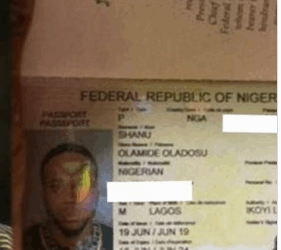Nigeria is already one of the top countries for cryptocurrency use worldwide. A 2023 Chainalysis report ranked it second globally for adoption, while Triple-A estimates that more than 22 million Nigerians, over 10% of the population, own digital assets. Yet Nigerian fintech blockchain adoption has lagged behind this surge, with major platforms still cautious about integrating the technology.
On peer-to-peer exchanges, Nigerians regularly trade volumes that outpace many developed economies. Yet, despite this massive uptake, the country’s leading fintech platforms, from digital banks to payment giants, have been slow to embrace blockchain. Will that change soon?
Over the past decade, Nigerian fintech has transformed how money moves. Payment platforms process trillions of naira annually, digital banks like Kuda and FairMoney have onboarded millions of users, and mobile-first lending apps have made credit accessible to people previously excluded from the formal banking system.
Remittances, too, show the scale of this shift. Nigeria is the continent’s top remittance destination, receiving over $20 billion annually, and fintech platforms have made those inflows faster and cheaper for users.
Yet, for all their innovation, these platforms still rely largely on traditional banking and payment rails. Blockchain, with its promise of instant cross-border transactions and greater transparency, remains at the fringes of their core business.

For fintech founders building in Nigeria, blockchain is less a buzzword and more an inevitable upgrade.
“Nigeria’s fintech ecosystem has grown by solving everyday problems like payments and financial inclusion,” says Chike Okonkwo, Marketing Manager, YDPay. “In the next three to five years, I see blockchain extending to solve deeper systemic issues like transparency, security, and cross-border interoperability.”
One of those issues is remittances. Nigeria remains one of the world’s largest remittance destinations, yet fees are among the highest.
Trust and transparency are another gap. In a financial system where hidden charges and unclear reconciliations frustrate users, blockchain’s verifiable records could restore confidence. Settlement speed adds to the appeal. “Traditionally, reconciliations can take hours or days,” he notes. “Today, blockchain enables near-instant clearing and settlement — that’s a game-changer.”
The naira’s instability also puts blockchain on the table. Many Nigerians already hedge in dollar-backed stablecoins informally; fintech entities see the chance to integrate them into regulated platforms. “Stablecoins can provide users safer, more accessible stores of value when local currency fluctuations bite hardest,” he says.
Beyond payments, blockchain could rewire identity and security. Immutable records and decentralised verification promise stronger KYC systems, cutting fraud and making onboarding smoother. Chike says that “It is less about hype, more about inevitability.”
Read also: Ugochukwu Aronu’s Asset Chain may be Africa’s bold future blockchain ownership
The fintech context
Over the past decade, Nigerian fintech has redefined access to finance. Payment processors like Paystack and Flutterwave enabled thousands of businesses to sell online with ease, while mobile money services brought digital transactions to millions who were once cash-dependent. Digital banks such as Kuda, FairMoney, and Carbon now compete directly with traditional banks, offering accounts, loans, and savings tools through mobile apps.
This transformation has been both deep and fast. The Nigerian Inter-Bank Settlement System (NIBSS) reported that electronic payment transactions grew from ₦1 trillion in 2012 to more than ₦600 trillion in 2024, reflecting how fintech platforms helped normalise cashless payments.
In lending, platforms that started with microloans now issue credit at scale, fuelling small business growth and personal consumption.
With over 500 active startups in Lagos alone, Nigeria has become Africa’s undisputed fintech capital, an industry that now touches nearly every household, from ride-hailing drivers to market traders.
Making the case for Nigerian fintech blockchain adoption
The case for blockchain in Nigerian fintech rests on three persistent pain points: cost, speed, and trust. Transactions are still slowed by reconciliation delays, remittances attract some of the world’s highest fees, and hidden charges continue to frustrate users. For many insiders, blockchain is the fix that traditional rails have failed to deliver.
Chike argues that this isn’t a matter of hype but of necessity. “Blockchain isn’t a silver bullet, but it offers practical solutions that traditional rails have struggled to fix for decades,” he says.


Marketing Manager, YDPay
“What fintech platforms achieved with mobile money and digital banking, products like YDPay can do for cross-border flows, transparency, and financial resilience. It is less about hype, more about inevitability.”
That inevitability is already visible in how Nigerians themselves use blockchain. Stablecoins, for example, have quietly become a hedge against inflation and naira volatility, with millions informally storing value in dollar-backed tokens. A formal integration of stablecoins into fintech wallets could bring this underground practice into the mainstream, making savings both safer and more transparent.
Cross-border payments show a similar gap. Nigeria is one of the largest remittance destinations in the world, and blockchain rails could move funds across continents in minutes rather than days. The result, Chike notes, is not just convenience but resilience. “Blockchain drastically lowers costs and settlement times, removing unnecessary intermediaries and giving people faster, cheaper access to funds,” he explains.
Beyond payments, identity and security loom large. Blockchain’s immutable ledgers can strengthen Know-Your-Customer (KYC) checks and reduce fraud — a critical need in an ecosystem where trust remains fragile. As Chike puts it, “Blockchain ensures every transaction is traceable and verifiable.”
Together, these possibilities sketch out a future where blockchain is not an alternative to fintech but its foundation — the layer that resolves inefficiencies and restores confidence in Nigeria’s fast-moving financial system.
Across Nigeria, blockchain is already woven into everyday financial life, just not through mainstream fintech apps. Freelancers increasingly ask to be paid in USDT or USDC to avoid bank delays and currency losses. Market traders and small business owners rely on peer-to-peer exchanges to receive funds from relatives abroad within minutes. Young savers move portions of their income into stablecoins as protection against naira depreciation.
The numbers highlight this quiet shift. World Bank data shows remittance fees into Nigeria average around 6% to 8% per transaction, among the highest in the world. By contrast, blockchain transfers can settle for less than 2%, often in under ten minutes. In 2023, Chainalysis estimated that Nigerians traded over $56 billion worth of crypto on peer-to-peer markets alone, a figure that dwarfs many African countries’ entire financial systems.
These habits show a thriving demand that operates outside regulated fintech platforms. Users have created a parallel system where blockchain is the default for speed, stability, and global reach.
For fintech entities, that reality is both a challenge and an opportunity to either integrate blockchain into their services or risk ceding relevance to unlicensed platforms already trusted by millions.
The regulatory question
If Nigerian fintech companies have been slow to embrace blockchain, regulation is a major reason. The Central Bank of Nigeria (CBN) has historically taken a cautious stance, restricting banks from facilitating crypto transactions in 2021.
By contrast, the Securities and Exchange Commission (SEC) has taken steps to regulate rather than ban, rolling out a framework for Virtual Asset Service Providers (VASPs) and issuing provisional licences to a handful of firms.


Read also: All you should know about SEC’s new rules for crypto investment in Nigeria
Chike Okonkwo believes this signals a shift in approach. “The CBN is still quite cautious in their approach, while the SEC has taken the lead with regulating the space,” he says. “However, the CBN and SEC are recognising that blockchain cannot be ignored and outright restriction is less effective than structured engagement. The provisional licence by the SEC signals a willingness to collaborate with industry players.”
For fintech entities, this creates both opportunity and uncertainty. Moving too fast could draw regulatory backlash, while moving too slow risks losing ground to less cautious competitors.
Chike suggests the path forward lies in partnership. “Over time, we expect more clarity, sandbox environments, and other licensing regimes from the CBN that allow blockchain-powered fintech entities to innovate responsibly,” he adds.
On the other hand, for all its promise, blockchain in Nigerian fintech faces hurdles. Education gaps remain wide. Many customers still associate blockchain only with speculative crypto trading.
Infrastructure costs are another barrier, as platforms must integrate new rails while maintaining existing systems. And regulators could easily backtrack if adoption outpaces control.
Critics often dismiss blockchain as a fad. Chike pushes back against this narrative. “Blockchain is only ‘hype’ when it is divorced from real problems and just a mere speculation,” he argues. “In Nigeria, the problems are very real: high remittance fees, slow settlements, lack of trust in systems, and currency volatility.”
The challenge is to prove that blockchain can solve these problems in ways that customers feel and regulators trust. Until then, scepticism will continue to shadow its growth.
Looking ahead
Nigerian fintech platforms may not have fully embraced blockchain yet, but the signals are clear. Adoption is already happening at the grassroots level, regulation is beginning to open up, and founders see blockchain as an inevitable foundation rather than an optional add-on.


“Stablecoins for cross-border payments and remittances will be the killer use case,” he predicts. “Nigeria is one of the largest remittance markets in the world, yet costs remain one of the highest. Blockchain enables instant, low-cost, transparent transfers that can directly impact millions of households.”
The question now is not whether Nigerian fintech will adopt blockchain, but which platform will be bold enough to lead the charge.





